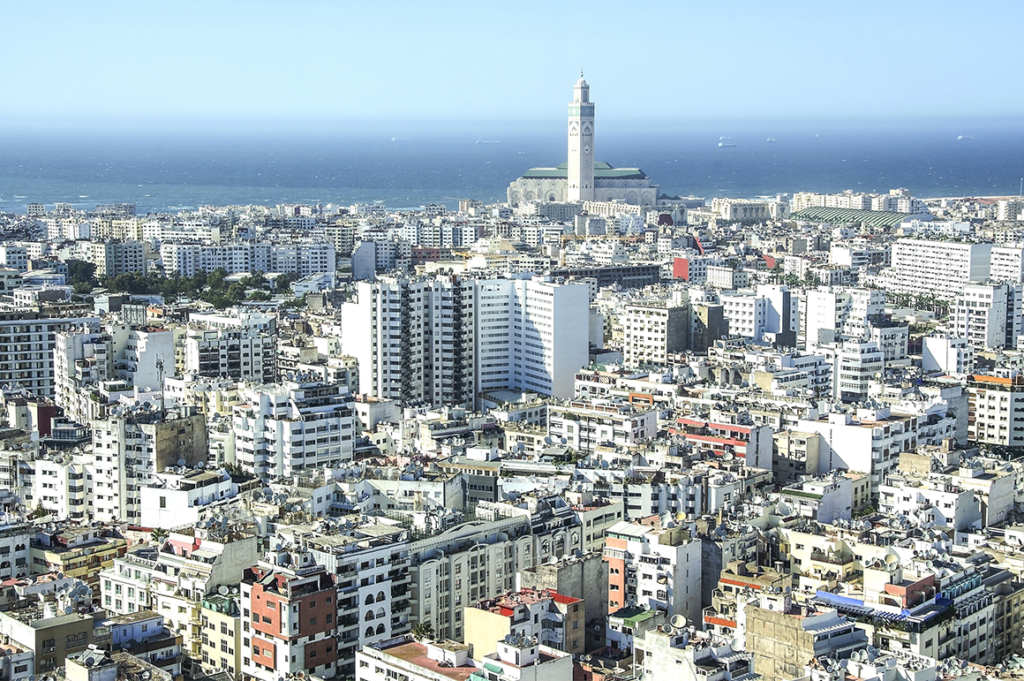- +212 611-650826
- contat@r-berroho.com
- 9704 Ziegler Ave Las Vegas , NV 89148. USA

I. Introduction
Morocco has emerged as a focal point for investment in the MENA region, leveraging its geographic location, political stability, and progressive trade policies.[1] With access to European, African, and Middle Eastern markets, the country has positioned itself as an attractive hub for multinational enterprises (MNEs) and middle enterprises seeking regional expansion. However, the complexities of Morocco’s corporate law framework require careful navigation to ensure compliance, particularly for international investors unfamiliar with local regulations.
This article examines Morocco’s corporate legal landscape, focusing on its opportunities, challenges, and the critical need for professional advice. It provides a roadmap for understanding the regulatory environment while emphasizing key areas where reforms are needed to enhance investor confidence.

Morocco’s corporate legal framework is defined by two primary statutes: Law 17-95 on Public Limited Companies[2] and Law 5-96 on Limited Liability Companies. Together, these laws establish the principles governing the incorporation, governance, and dissolution of corporate entities.
Amendments to these laws in recent years have aimed at fostering transparency and accountability. For instance, a 2021 reform under Law 20-19 introduced stricter reporting requirements for publicly listed companies, aligning Morocco’s corporate governance standards with international norms.[3] These reforms have bolstered investor confidence, particularly in sectors such as manufacturing and renewable energy.
However, inconsistencies in enforcement remain a challenge. A lack of uniformity in judicial interpretations has created uncertainty, especially for foreign investors navigating cross-border agreements.[4] Addressing these disparities is crucial for enhancing Morocco’s appeal as a business-friendly destination.
The process of establishing a business entity in Morocco is straightforward in theory but can be cumbersome in practice due to administrative delays. Investors have a choice between several corporate structures, the most popular of which include the Société à Responsabilité Limitée (SARL) and the Société Anonyme (SA).[5]
Foreign investors must register with the Moroccan Trade Register and obtain a unique business identifier through the Regional Investment Center (CRI). Recent digitalization efforts have reduced registration times, although navigating bureaucratic hurdles often requires professional assistance.[6]
Morocco offers a range of tax incentives designed to attract foreign direct investment (FDI), particularly in free zones such as Tangier and Casablanca Finance City. Companies operating in these zones enjoy tax exemptions for up to five years, followed by reduced corporate tax rates thereafter.[7]
The country’s network of over 50 Double Taxation Agreements (DTAs) with major economies ensures that international investors avoid double taxation on income earned in Morocco. [8] However, the implementation of OECD’s Base Erosion and Profit Shifting (BEPS) Action Plan has introduced stricter regulations around transfer pricing, which can complicate tax planning for MNEs.[9]
To maximize the benefits of Morocco’s tax regime, investors are advised to engage with legal and tax experts who are well-versed in local and international tax laws.
Despite its investor-friendly reforms, Morocco faces significant challenges in creating a seamless business environment:
Addressing these challenges requires coordinated efforts from policymakers, legal professionals, and industry stakeholders.
Renault’s $1.1 billion investment in the Tangier Free Zone serves as a testament to Morocco’s potential as a manufacturing hub.[12] The project benefited from tax incentives and streamlined administrative processes, creating thousands of jobs and boosting Morocco’s export capabilities.
A European construction firm faced significant delays in enforcing an arbitral award under Moroccan law. The dispute highlighted weaknesses in the enforcement mechanisms, prompting the firm to lobby for legislative reforms in arbitration procedures.[13]
Morocco’s corporate law environment presents a mix of opportunities and challenges for national and international investors. While the country has made commendable progress in reforming its legal framework and aligning with international standards, gaps in enforcement and bureaucratic inefficiencies persist.[14]
For investors, success in Morocco depends on leveraging professional expertise to navigate the complexities of local laws and regulations. By addressing existing challenges and building on its strengths, Morocco can solidify its position as a premier destination for foreign direct investment.[15]
World Bank, Doing Business in Morocco (2023), https://www.worldbank.org. ↑
Law 17-95 on Public Limited Companies (Morocco). ↑
OECD, Morocco Corporate Governance Factbook (2021). ↑
World Bank Group, Ease of Doing Business in Morocco Report (2023), https://www.worldbank.org. ↑
Moroccan Companies Act, Law 5-96 on Limited Liability Companies, art. 1 (Morocco). ↑
OECD, Investment Guide to Morocco (2022). ↑
Moroccan Tax Code (2023). ↑
United Nations, Model Tax Convention (2022). ↑
OECD, Transfer Pricing Guidelines for Multinational Enterprises and Tax Administrations (2022). ↑
Transparency International, Corruption Perceptions Index: Morocco (2023), https://www.transparency.org. ↑
Law 08-05 on Arbitration (Morocco). ↑
Renault Group, Annual Sustainability Report (2023). ↑
UNCITRAL, Model Law on International Commercial Arbitration (2020). ↑
OECD, Morocco Corporate Governance Factbook (2021). Moroccan Companies Act, Law 17-95 (Morocco).
World Bank, Ease of Doing Business in Morocco Report (2022), https://www.worldbank.org. ↑